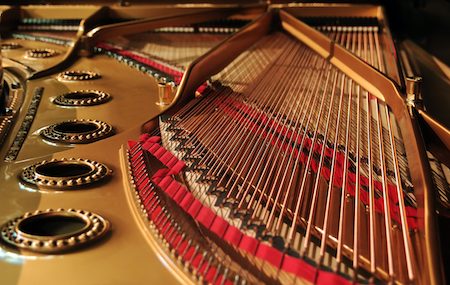A piano is a piano, right?
Even in your heart, you know that’s probably not true. Why would there be so many sizes and shapes and brands if that were the case?
Still, we have a lot of conversations like this one:
“My daughter wants to play the piano. Why isn’t the free one I can get on Craigslist good enough? I can’t tell the difference anyway.”
“Have you ever compared the tonal quality of several pianos?”
“No. But a piano is a piano, right?”
Like every product you purchase, you get what you pay for.
Those pianos you can pick up for a few hundred dollars will perform at that level. If they don’t have any value, there’s a reason for that. Maybe keys don’t work. Maybe the notes will sound a little off. It may have a tinny sound.
And that impacts playability.
There are significant differences in the manufacturing process of different levels of pianos.
Some are handmade, while others are mass-produced. What that means is some instruments are created in a factory, every piece screwed, hammered, or bound into place in the quickest way possible to get it out on the floor, for sale, ready to bring in a profit. Others sit in the factory, lovingly worked on each day until the creator feels the piano is finally ready to release.
Quality pianos are produced with performance in mind. They pay attention to all of the characteristics that make a piano sound great. Every tone, every touch, is played over and over again until each note sounds just right.
Let’s go back to a parent wanting to give their child the gift of music. Sure, you want to ensure they like to play and will stick with it before you invest in more.
But piano isn’t something you pick up and learn in a few simple lessons. It’s something that becomes a part of you, throughout your life.
It’s a friend, something you can sit down and play when the feeling arises. It can be an ebb and flow throughout your life. It’s there, waiting.
And that’s when buying a high quality piano matters most.
Because it can be with you for a lifetime.


